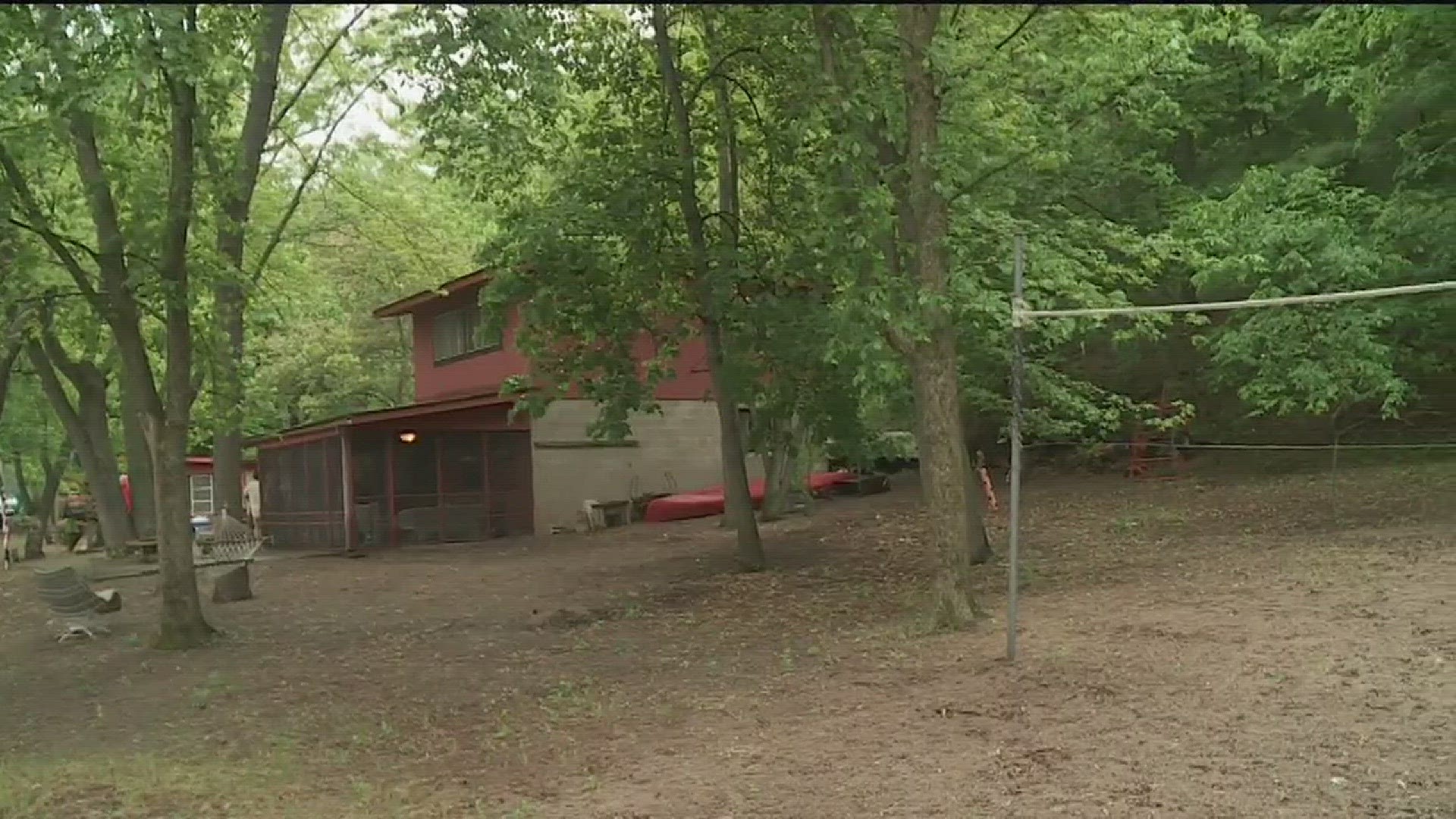HUDSON, WI -- The US Supreme Court will hear a property rights case that originated with a family's attempt to sell a lot adjacent to their cabin along the St. Croix River.
William Murr, a South St. Paul plumber and World War II veteran, built the cabin in 1960 in Saint Croix Cove south of Hudson. It served as a summer home for Murr, his wife Dorothy, and their six children for many years and is still a gathering spot for the family.
"This is the glue that holds the family together and that’s what mom and dad wanted," Dorothy Murr said of her parents.
Before William and Dorothy died they transferred ownership of the cabin to their children. They also gave them an empty lot next door to the cabin, land they bought in 1963 as an investment property based on the notion the area would continue to be in demand.
In 2004 the Murr siblings decided to sell the vacant piece of land, in hopes of raising the money needed to improve their cabin. But Saint Croix County planning officials said the lot couldn't be sold separately.
"You thought all along you’ve got a parcel you can sell. And then when you actually exercise your right to sell it and you’re told you can’t, you’re in shock," Donna Murr remarked. "Flabbergasted, blindsided, just shocked."
Planning officials said the 1.25 acre lot, though considered buildable when the family bought it, no longer met the minimum lot size for a housing development. The codes had been updated to subtract slopes and floodplains from the developable area.
The aim of the regulations is to prevent overdevelopment along the St. Croix River, which is a national scenic waterway. But the St.Croix Cove Subdivision is a long established, developed area.
And similarly situated abutting lots can be "grandfathered in" if they were purchased before the new development standards were enacted. But that grandfather clause is only available if the contiguous lots have different owners.
Because the Murr family owned both lots they'd have to be treated as one parcel when it came to development rules.
After the county denied a variance, the family sued under the premise that the zoning policy amounted to an unconstitutional "taking" of property without just compensation.
"This case has really brought our family together because we truly all believe so strongly that our property rights have been violated and that our family legacy has been stolen from us," Donna Murr told reporters Friday.
"Mom and Dad would’ve fought for this too. And they would’ve fought really hard, and they would’ve never have given up."
The family enlisted the help of the Pacific Legal Foundation, a nonprofit that takes cases pitting individuals against potentially unconstitutional government regulations.
"The two parcels were always legally separate and distinct parcels, purchased separately with separate deeds," John Groen, the lead counsel on the case for Pacific Legal Foundation, told reporters.
"Everybody understands what they’re buying, they’re buying a separate parcel that they can buy and sell."
Saint Croix County and the State of Wisconsin maintain they're under no legal obligation to compensate the Murr Family for losing the economic potential of the lot. The government, by averaging the two side-by-side lots into one "parcel," can argue the family still has the option to benefit by selling the all the land at the same time along with the cabin.
Groen said the High Court is scheduled to hear the case in October, and will most likely rule on it next spring.
He said his clients thought it would be good to speak to the media Friday because the family was gathering for Memorial Day weekend, which also coincides with William Murr's birthday of May 29.
"It’s a very special place because it’s the one thing that really holds our family together since Mom and Dad have passed away," Donna Murr explained.
Her brother Mike Murr, the oldest of the six children, said he has spent 40 years teaching high school history and social studies.
"One of the things I always tell my students is that in the United States even average Americans can get their cases heard before the US Supreme Court," Murr quipped. "It turns out I was right!"

